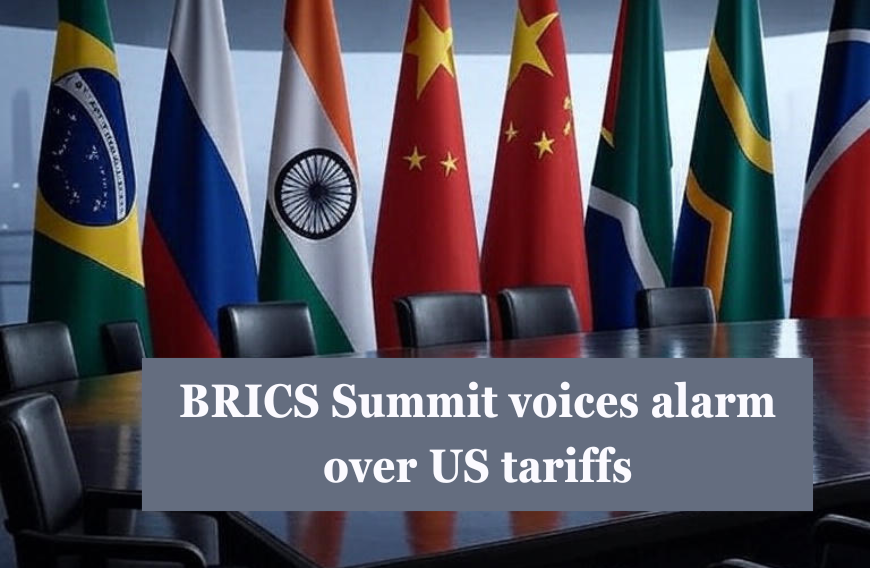In a virtual summit Monday, the 11-member BRICS group voiced strong opposition to economic protectionism and what they called, “tariff blackmail”, highlighting growing tensions with the Trump administration’s trade policies.
The group of emerging economies convened via video conference at the initiative of Brazil’s President Luiz Inacio Lula da Silva, whose office said it was necessary to address the “intensification of unilateral measures.” Together, the BRICS nations account for nearly 40 percent of global GDP and represent almost half of the world’s population.
BRICS members, many of whom have been directly affected by U.S. trade policies, were singled out by Lula Monday as victims of “tariff blackmail” and “unjustified and illegal” trade practices. Chinese President Xi Jinping added that the group is committed to upholding “the multilateral trading system with the World Trade Organization at its core’ and urged the rejection of “all forms of protectionism,” a clear nod to rising frictions with the Trump administration.
READ: Trump open to backing down on his tariffs against India? (September 9, 2025)
In Brazil, President Donald Trump imposed his highest-level trade tariff 50 percent on a variety of goods from Latin America’s largest economy. The move comes as Washington targets Brazil over what Trump calls a “witch hunt” against his right-wing ally, former President Jair Bolsonaro, who faces trial for allegedly plotting a coup to overturn the 2022 election results. A verdict is expected this week. “Tariff blackmail is being normalized as an instrument for market conquest and to interfere in domestic affairs,” Lula said Monday.
Washington has also levied tariffs of up to 50 percent on Indian imports, accusing New Delhi of supporting Moscow’s deadly campaign in Ukraine through its purchase of Russian oil. Speaking at the BRICS summit, Indian Foreign Minister Subrahmanyam Jaishankar stressed the need for sustainable trade, noting that “increasing barriers and complicating transactions will not help.”
Jaishankar emphasized that, “world requires constructive and cooperative approaches to promote trade that is sustainable.”
Putin too joined the virtual summit just days after meeting Xi, North Korea’s Kim Jong Un, and India’s Narendra Modi in China, where regional leaders criticized what they called America’s “bullying behavior.”
READ: Tariffs, trade wars, and America’s leadership test (September 2, 2025)
President Trump targeted South Africa with a 30 percent tariff, the highest in sub-Saharan Africa escalating a dispute with Washington over a mix of domestic and international policies. Trump, who has repeatedly referenced debunked claims of a “genocide” of white South Africans, is not expected to attend the G20 summit in Johannesburg later this year. In a prepared address to BRICS leaders, South African President Cyril Ramaphosa warned that “unilateral tariff actions are contributing to an increasingly protectionist environment which poses great hardships and danger for the countries of the Global South.”
In July, Trump criticized the BRICS nations and warned of further export tariffs after the bloc expressed concerns that his trade war could jeopardize the global economy. “We must remain steadfast in promoting the building of an open global economy, sharing opportunities and achieving win-win results through openness,” Xi stated at the Summit.
Lula also seized the summit to criticize a U.S. military build-up in the Caribbean, which he said added “a factor of tension.” Washington has deployed warships and aircraft in what it described as an anti-drug operation and destroyed an alleged “narco” boat, killing 11 people and stoking fears in Venezuela of a potential invasion.
